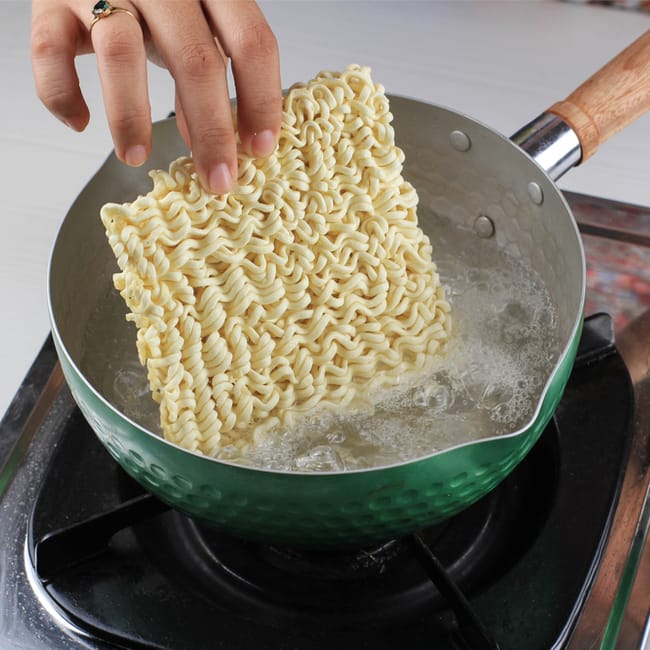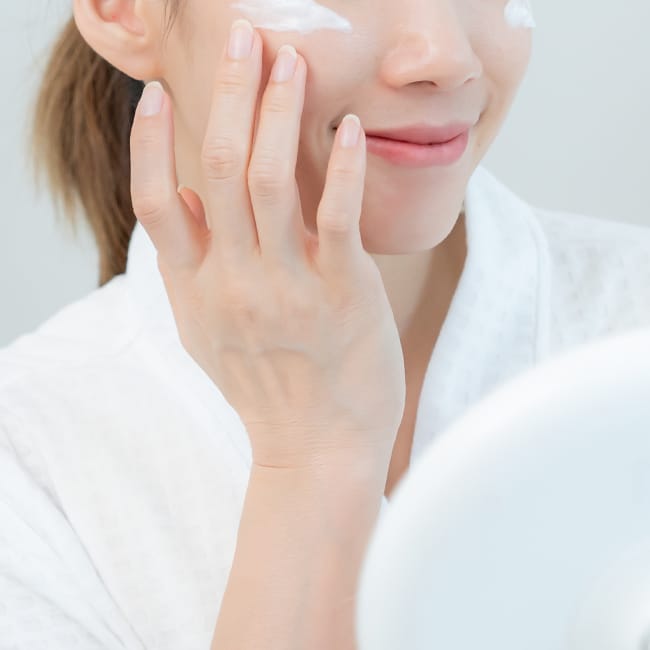This post has been updated since it was originally published on May 19, 2022.
While dry skin is a natural skin type for many people, it can also be exacerbated or become itchier and patchier with an unbalanced, salt-heavy diet. This, can then lead to sagging, drooping skin (that needs lots of TLC and moisturizing). Drinking plenty of water, eating an array of vitamins and minerals and moisturizing daily can help combat dry, sagging skin, and evaluating and assessing your daily food and snack choices can be beneficial as well. We checked in with health and skincare experts Dr. Simran Sethi, MD, MBA and Dr. Rudolf Probst, MD, to learn more about how common (and undeniably delicious) processed foods can be linked to sagging skin, and why it’s best to be wary of it for this reason.


Potato Chips
As we age, our skin naturally begins to sag and become drier. After enduring the past chilling winter, you might agree that nothing is worse than itchy, patchy or peeling dry skin (and your diet plays a much bigger role in your skin health than you might think!) With that said, snacking on potato chips frequently is easy to do as they are delicious and easily accessible, but Sethi warns that their heavy salt content can wreck havoc on skin that is already very dry and make it sag all the more faster.
"Potato chips are notoriously high in salt which will dehydrate skin," Sethi says. Elevated salt intake causes water to travel out of our cells, which she explains causes dehydration in general. "The skin is the largest organ in our body and is the first organ to show symptoms of dehydration which presents as dry skin," she adds.
Ultimately, it's important to listen to your body and provide hydration for skin that shows these signs. Eating these foods on a regular basis will not only lead to dry, sagging skin, but can also cause acne flare ups, she notes. "Dry skin creates more debris on the skin’s outer surface, which can clog pores and result in excess breakouts and blemishes." Probst agrees, and adds that there are additional effects of heavy potato chip intake on your skin in the long run. "Potato chips are full of refined carbs," Probst says. This, he stresses, makes your skin "inflamed, causing wrinkles and sagging skin."

Instant Noodles
According to registered dietitian Johna Burdeos, RD, "Our eating and hydration patterns can damage our skin. A diet that is poor quality, lacking in nutrients and hydration, is more likely to cause skin problems like inflammation, dullness, dryness, acne, and wrinkles earlier in life." She continues, "A diet made up of mostly processed food is lacking in nutrient and antioxidant rich foods." Unfortunately, instant noodles fall under the processed food category.
Additionally, dermatologist Dr. Elaine Kung emphasizes that instant noodles are packed with salt. As a result, your body can experience fluid retention, which can eventually cause rashes on the leg known as statis dermatitis. Dr. Kung explains, "Scientific studies have demonstrated that high salt intake has been shown to impair dermal tissue remodeling, inflammation in the skin, and increase hormonal vasoreactivity. Therefore, salt may have implications in wound healing and aging. MSG is well known to induce flushing of the skin, which can worsen conditions like acne rosacea.
Similarly, Jay Cowin of ASYSTEM mentions that too much salt "can cause the skin to swell, which makes wrinkles more pronounced." He adds, "It can also draw out water from the skin, making it look dry and irritated. This increases the chances of wrinkles and worsens skin conditions like eczema."

Overall, eventually stopping the intake of these foods can greatly aid your skin as long as you replace them with collagen-boosting, protein-rich snacks instead. "Drinking at least 10 glasses of water (8 oz) and of course, limiting consumption of such foods to once a week or less is the best way to avoid dehydrating your skin," Sethi concludes. For more information, and customized tips regarding aging skin health, visit your local dermatologist, doctor, or skincare expert.


























